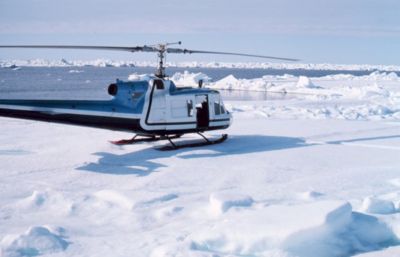Aircraft
 From Conservapedia
From Conservapedia Aircraft are machines that locomote through the atmosphere. The earliest aircraft were kites and hot air balloons. Dirigibles filled with hydrogen proved airworthy, but there was always the problem of combustion (see Hindenburg disaster).
Rapid flight is made possible with a wing shape which forces the air over the wing to move faster than the air underneath. This creates a difference in air pressure, and with enough wing area a pressure differential of even one pound per square inch can add up to enough force to keep a glider in the air. The only problem then is that gliders must soon return to the earth. For an extended flight, something must pull the aircraft through the air.
Many attempts were made to achieve heavier-than-air flight (outside of balloons) towards the end of the 19th century, in Europe and America. However, even when engines became powerful enough to pull an airplane through the sky, the problem was control. The Wright Brothers solved this problem by realizing that twisting the wings would control the roll of the aircraft.
The Early Days of Aviation[edit]
Leonardo da Vinci, via dissection and analysis of the anatomy of birds, was among the various Renaissance scientists to explore flight. Otto Lilienthal [1] instigated the modern era of heavier-than-air flight. The Wright Brothers, through research into wing section and planform design [2] succeeded in 1903 in the first heavier than air powered flight.
Modern Aircraft[edit]
Modern aircraft are generally largely aluminium semi-monocoque structures. The first commercial aircraft to feature fly-by-wire technology was the Airbus A320.[3]
See also[edit]
References[edit]
- ↑ http://www.lilienthal-museum.de/olma/ehome.htm
- ↑ http://nasm.si.edu/wrightbrothers/index_full.cfm
- ↑ (2003) Civil Avionics Systems. London (iMechE): Professional Engineering Publishing Ltd..
Categories: [Transportation] [Military Strategies and Concepts] [Aircraft]
↧ Download as ZWI file | Last modified: 03/03/2023 10:39:52 | 196 views
☰ Source: https://www.conservapedia.com/Aircraft | License: CC BY-SA 3.0
 ZWI signed:
ZWI signed:
 KSF
KSF